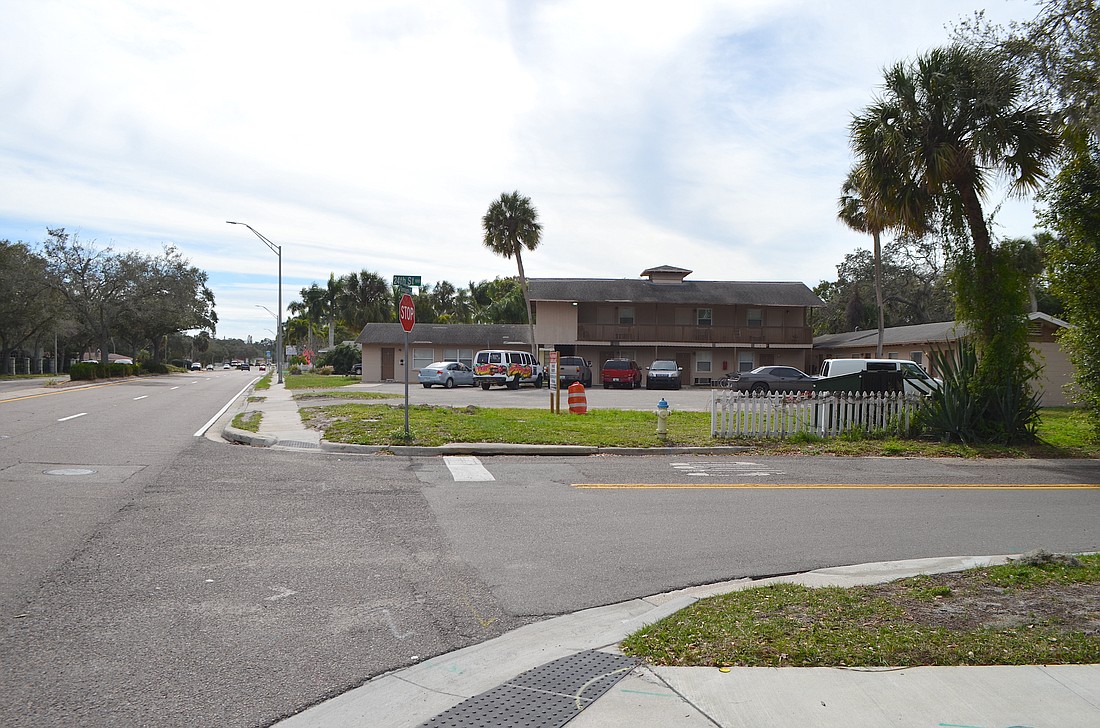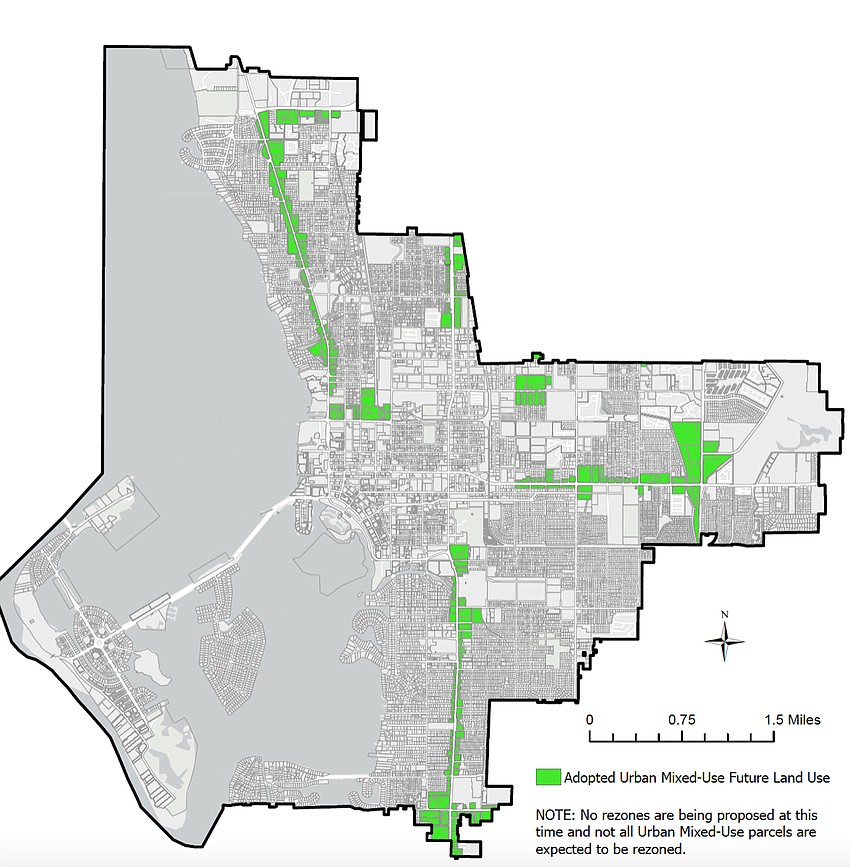- November 23, 2024
-
-
Loading

Loading

By an identical 3-2 vote to the first reading, the Sarasota City Commission Monday night approved on second reading a proposed zoning text amendment to incentivize affordable and attainable housing in new developments along commercial corridors and in commercial centers throughout the city.
As they did on March 4, Vice Mayor Jen Ahearn-Koch and Commissioner Debbie Trice dissented, but not because they oppose development of affordable housing.
Ahearn-Koch held firm to her position that requiring 15% of the density bonus be reserved for attainably priced dwelling units — which results in 11% of the overall project — is too much benefit for developers and not enough gain for the city. In addition to agreeing with Ahearn-Koch, Trice said the mixed-use development component of the ordinance is “not ready for prime time,” and wanted that removed for further discussion.
They also both expressed concerns about outdoor bars permitted in mixed-use developments, particularly rooftop bars on the top floor of five-story buildings.
“That's the real fear of the neighborhoods, because if your rooftop is anywhere on the North Trail and you've got a view of the water, the fear is that is there's going to be this proliferation of rooftop bars and there's nothing protecting you from that,” Ahearn-Koch said.
Planning General Manager Ryan Chapdelain responded that if a five-story building were developed using the affordable housing height and density bonus, market forces will dictate that top floor to be all residential.
Trice attempted to offer a “friendly amendment” to Commissioner Erik Arroyo’s eventual motion to approve removal of the outdoor bars, which he declined.
The evening special meeting drew more than a dozen speakers for public comment, yielding about an even mix of support and opposition. The latter leveled criticisms at a “developer giveaway” and the density and scope permitted causing an undue burden on neighborhoods bordering the thoroughfares and commercial centers.
At one point, while resident Dan Lobeck was directing comments at individuals, Mayor Liz Alpert repeatedly reminded him of the city’s code of conduct to “not engage in personal attacks” and threatened to clear the meeting chamber after being shouted at from the audience.
Supporters of the ordinance said that it may not be perfect, but it is needed. Planning Director Steven Cover said the 15% of bonus density model is yielding results in downtown with several affordable housing inclusive projects working their way through the approval process, in contrast to the 25% model in the Rosemary District that has yielded no results.
The ordinance, he said, has even garnered statewide accolades.
“Since the first public hearing staff was asked by the Florida Housing Coalition to present at a virtual regional workshop on the city's downtown and the commercial corridors and commercial centers attainable housing density program, and also a presentation was given to the Bay Area Apartment Association,” Cover said. “They invited just us to give a presentation on our attainable housing effort, and Kody Glazer, who is the chief legal and policy officer, said after we gave our presentation the reason they wanted Sarasota to present the program is because he thought it was the best in the state.”
The ordinance does not rezone any property. Rather, it’s an overlay that permits residential and mixed-use development on properties currently zoned for commercial with a future land use of multi-use, providing affordable housing is included. As a bonus, the additional density is anticipated to increase the city’s housing stock that may ease pricing of market rate dwellings.
“For years we’ve been dealing with affordable housing,” said Commissioner Kyle Battie. “It wasn’t until the prior commission and this commission that we started to address the affordable housing outside of the Housing Authority. All commissions prior to us had every opportunity to address affordable housing, and they gave us condominiums. They gave us high-rises. So I will take 15% over the zero that we have been given up to this point.”

Speaking against the ordinance, former Planning Board member Kathy Kelley Olrich said, “We're putting three times the demand on our infrastructure and services, but providing enough affordable housing to exacerbate our housing crisis rather than fix it. You can send this ZTA back to staff and require mandatory affordable housing at an increased percentage along with some other compromises for high density and setbacks. It will help resolve our affordable housing crisis and protect our neighborhoods, not just revitalize our corridors.”
Certified planner Philip DiMaria of Kimley Horn, who frequently represents developers before the city commission, provided a personal anecdote to describe the local housing challenges for service workers and young professionals.
“My company is in the throes of hiring summer interns who come out of college every May,” he said. “We’ve had an excessive amount of fantastic interviews and every single time they accept an offer they'll look at an apartment and say, 'Hey, I'm sorry, but it's cheaper to live in St. Petersburg or Tampa, so I'm going to go ahead and do that. Thanks for the opportunity, but I really can't make ends meet.’
“Just from an economic standpoint we need to remain competitive, and that means increasing the housing supply.”
Monday’s approval completes a two-year effort that began in 2022 with comprehensive plan amendments that first facilitated zoning text amendments to incentivize affordable housing developments in the downtown zoning districts. To date, developers have submitted plans that include 87 affordable units among a total of 799 apartments in the downtown area.